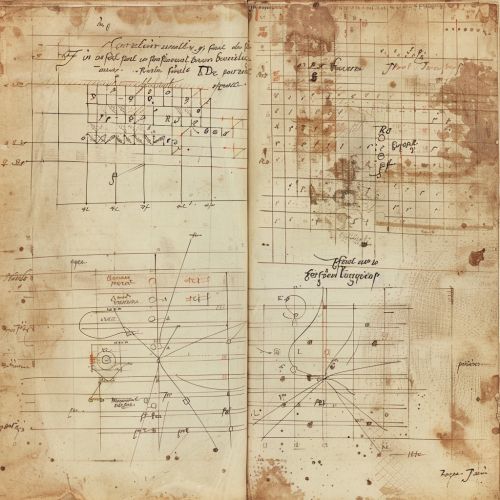Gottlob Frege
Early Life and Education
Friedrich Ludwig Gottlob Frege was born on November 8, 1848, in Wismar, a town in the Grand Duchy of Mecklenburg-Schwerin, now part of Germany. His father, Karl Alexander Frege, was a headmaster at a girls' high school, and his mother, Auguste Wilhelmine Sophie Frege, was a homemaker. Frege's early education was influenced by his father's profession, which instilled in him a strong foundation in classical education and mathematics.
Frege attended the University of Jena in 1869, where he studied mathematics, physics, chemistry, and philosophy. He later transferred to the University of Göttingen, a leading center for mathematical research, where he completed his doctorate in mathematics in 1873. His dissertation, titled "Über eine geometrische Darstellung der imaginären Gebilde in der Ebene" ("On a Geometrical Representation of Imaginary Forms in the Plane"), was supervised by Ernst Christian Julius Schering.
Academic Career
Frege began his academic career at the University of Jena, where he was appointed as a Privatdozent (unsalaried lecturer) in 1874. He was later promoted to the position of außerordentlicher Professor (extraordinary professor) in 1896 and became an ordentlicher Professor (full professor) in 1906. Despite his significant contributions to logic and philosophy, Frege's work was not widely recognized during his lifetime, and he remained relatively obscure in the academic community.
Contributions to Logic and Philosophy
Begriffsschrift
In 1879, Frege published his groundbreaking work, "Begriffsschrift" ("Concept Script"), which introduced a formal system of logic that extended beyond the traditional Aristotelian syllogistic logic. The Begriffsschrift is considered the first formal system of predicate logic and laid the foundation for modern mathematical logic. Frege's system included a notation for quantifiers and variables, which allowed for the formalization of statements involving multiple quantifiers and the expression of complex logical relationships.


Foundations of Arithmetic
Frege's interest in the foundations of mathematics led him to publish "Die Grundlagen der Arithmetik" ("The Foundations of Arithmetic") in 1884. In this work, Frege argued that arithmetic could be derived from purely logical principles and definitions, a position known as logicism. He introduced the concept of Hume's Principle, which states that the number of a concept F is the same as the number of a concept G if and only if F and G can be put into one-to-one correspondence.
Sense and Reference
In his 1892 paper "Über Sinn und Bedeutung" ("On Sense and Reference"), Frege introduced the distinction between the sense (Sinn) and reference (Bedeutung) of a term. The sense of a term is its mode of presentation, while its reference is the actual object it denotes. This distinction has had a profound impact on the philosophy of language and has influenced subsequent work in semantics and pragmatics.
Grundgesetze der Arithmetik
Frege's magnum opus, "Grundgesetze der Arithmetik" ("Basic Laws of Arithmetic"), was published in two volumes in 1893 and 1903. In this work, Frege attempted to formalize the principles of arithmetic using his logical system. However, his project was undermined by the discovery of Russell's Paradox, which revealed an inconsistency in Frege's system. Despite this setback, the Grundgesetze remains a seminal work in the history of logic and the philosophy of mathematics.
Legacy and Influence
Frege's work has had a lasting impact on the fields of logic, mathematics, and philosophy. His formalization of predicate logic provided the foundation for subsequent developments in mathematical logic, including the work of Bertrand Russell, Alfred North Whitehead, and Kurt Gödel. Frege's ideas also influenced the development of analytic philosophy, particularly through the work of Ludwig Wittgenstein and Rudolf Carnap.
Frege's distinction between sense and reference has become a central topic in the philosophy of language, shaping contemporary discussions on meaning, reference, and propositional attitudes. His contributions to the foundations of arithmetic and logicism have also influenced the philosophy of mathematics, particularly in the work of Hilary Putnam and W.V.O. Quine.
Personal Life and Later Years
Frege married Margarete Katharina Sophia Anna Lieseberg in 1887, and the couple had two children. Frege's later years were marked by personal and professional challenges, including the death of his wife in 1904 and the limited recognition of his work during his lifetime. He retired from his academic position in 1918 and spent his final years in Bad Kleinen, where he continued to work on his philosophical and logical projects until his death on July 26, 1925.
See Also
- Mathematical Logic
- Logicism
- Russell's Paradox
- Philosophy of Language
- Analytic Philosophy
- Foundations of Mathematics
- Predicate Logic
